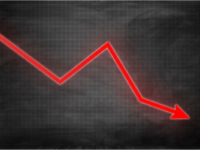Employment Hero’s latest SME Index reveals a concerning trend: Australians are working longer hours for reduced wages, with small businesses bearing the brunt of the economic downturn.
Despite a modest monthly increase in median hours worked (1.0 per cent) and an annual rise (2.3 per cent), wages have seen a downturn of -1.3 per cent in February. This decline contrasts sharply with a 7.5 per cent annual wage growth, which the index interprets as a sign of the early stages of market correction for median wages.
The strain is most acute among small businesses (between one and 19 employees) as they are seeing only a 0.3 per cent month-on-month (MoM) and 5.6 per cent annual employee growth compared to medium businesses at one per cent and 15.3 per cent, then large businesses at 0.9 per cent and 18.4 per cent respectively. This data, correlates to the figures from ASIC released earlier last week which noted that monthly business insolvencies are at a nine-year high.
The once-booming technology sector has now shown signs of cooling in particular, marked by the Index’s lowest employee growth and a significant month-on-month median hourly wage drop of -4.8 per cent to $57.12, as well as an annual decrease of -0.2 per cent, compared to all other sectors that saw annual wage growth.
The report also highlights an intriguing generational divide in the workforce. While most age groups saw a decrease in median hours worked, those aged 65+ bucked the trend, which the index interprets as an indication of a necessity-driven increase (+10.4 per cent MoM) in working hours to cope with economic uncertainties. Annually, individuals under 18 saw a -5.1 per cent decrease in hours worked while other age groups saw an increase between +1.1 per cent (25-64 year olds) and +2.9 per cent (65+ year olds).
“The latest Index findings point out the dichotomy between overall employee growth and the challenges faced by small businesses,” Ben Thompson, CEO and co-founder of Employment Hero, commented. “Just as our data has revealed, many businesses are experiencing overall employee growth, in line with February’s ABS unemployment rate which dropped 0.4 per cent from 4.1 to 3.7 per cent. However, glaring issues remain for small businesses that are not only experiencing stagnant growth, but are at risk of insolvency and being forced to make hard decisions.
“As such, small-business owners are looking to cut down on expenses and reduce workers’ hours, while their employees are having to navigate job instability, underemployment and consequential financial strain,” Thompson added. “[This makes] them likely to seek another job to make ends meet. Small and medium businesses are the heartbeat of our economy, accounting for almost 70 per cent of employment in Australia. While larger businesses show signs of resilience and recovery, this report’s stark revelation shows small businesses are at a very real risk of going under. This demands immediate attention to safeguard these crucial contributors to our economy.”
Eddie Kolwalski, senior insights manager at Employment Hero, said that the dramatic shifts in working hours, especially among the eldest and youngest in the workforce, reflect broader economic pressures and the uneven impact on different demographic groups.
“The trend among the younger demographic can be attributed to the higher likelihood of underemployment, with many in this age group often finding themselves in hospitality or retail positions,” Kolwalski said. “On the other hand, the increase in hours for those aged 65 and above suggests a necessity-driven choice. While we have seen recently that Australia’s unemployment rate has dropped, this data represents the very real concern of underemployment. There’s not much to celebrate when people are in jobs but not making enough to live off it.”
This article was first published on Inside Small Business.















